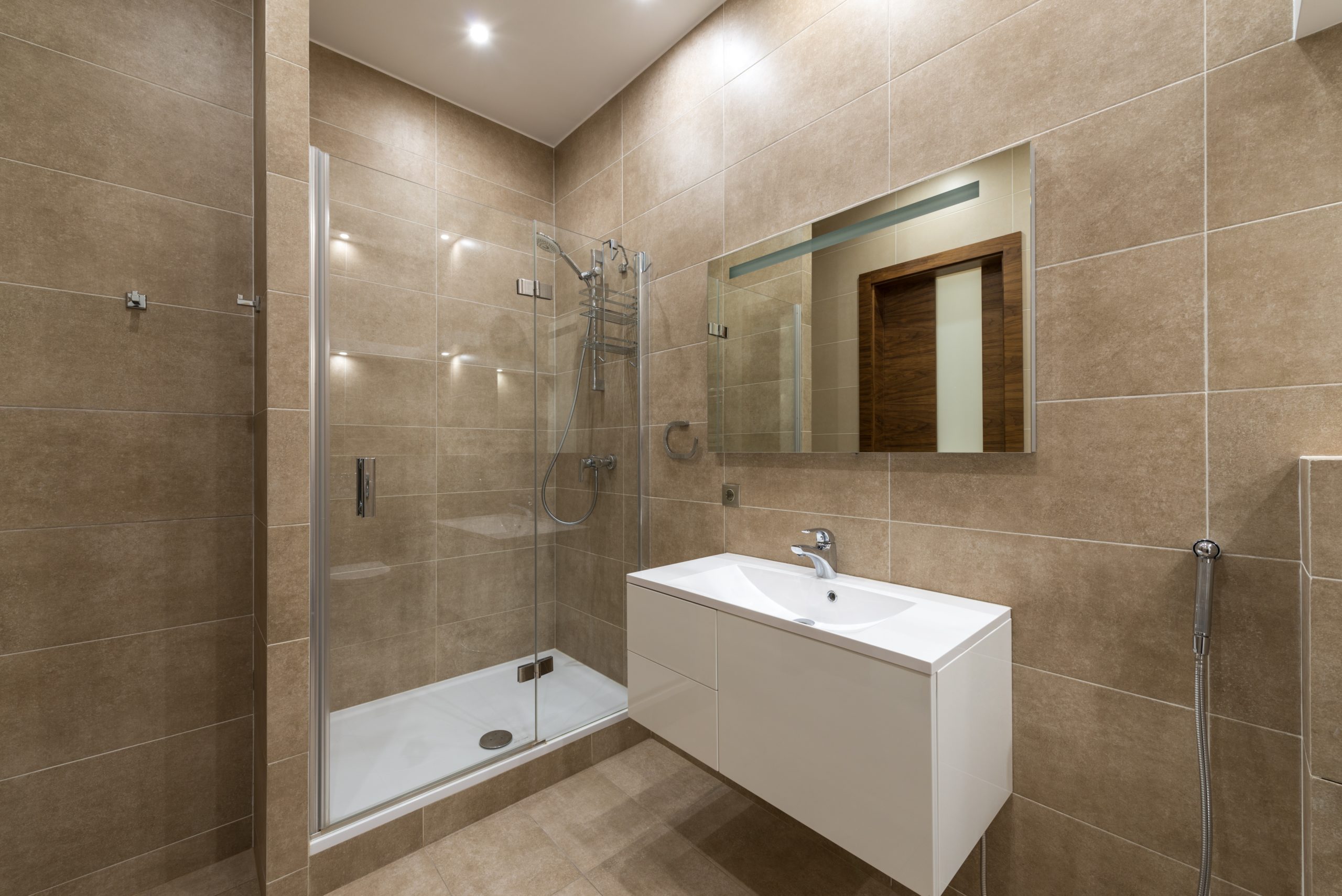One of the major factors to consider when making your decision is the size of your bathroom. If you’re working one that’s smaller, sliding doors may be the better option because they don’t require any space to open. But if you’re in a position to choose between installing a sliding or a hinged shower door, let’s consider the pros and cons of both.
Sliding doors eliminate the need for a shower curtain and do a better job of keeping the water inside your enclosure. There’s usually a convenient bar attached where you can hang your towel. They provide an attractive, seamless appearance and are available in framed, semi-framed, and frameless configurations, with the prices increasing in that same order.
Because they sit on a metal track that can trap dirt and soap residue or even rust over time, they do require more maintenance and are somewhat difficult to clean from the outside. The somewhat limited width of sliding shower doors restricts access for seniors and other individuals with mobility issues and can make bathing small children more difficult.
Frameless, hinged shower doors offer you greater width and, because they don’t have a track, are much easier to keep clean. Their simple, aesthetic look makes them a popular choice for bathrooms with space to accommodate their ability to open to a full 90-degree angle. Because of their minimalist design, they can blend with a wide variety of interior décor styles.
Shower doors with pivot hinges can have leakage issues because the small space between the glass and the wall allows some water to seep through. For that reason, it’s best to make sure the shower head is pointed away from the door when it’s being used.
Need help deciding between the two? At MBR Glassworks, we’re always happy to provide our expert design consultation when you need it.

